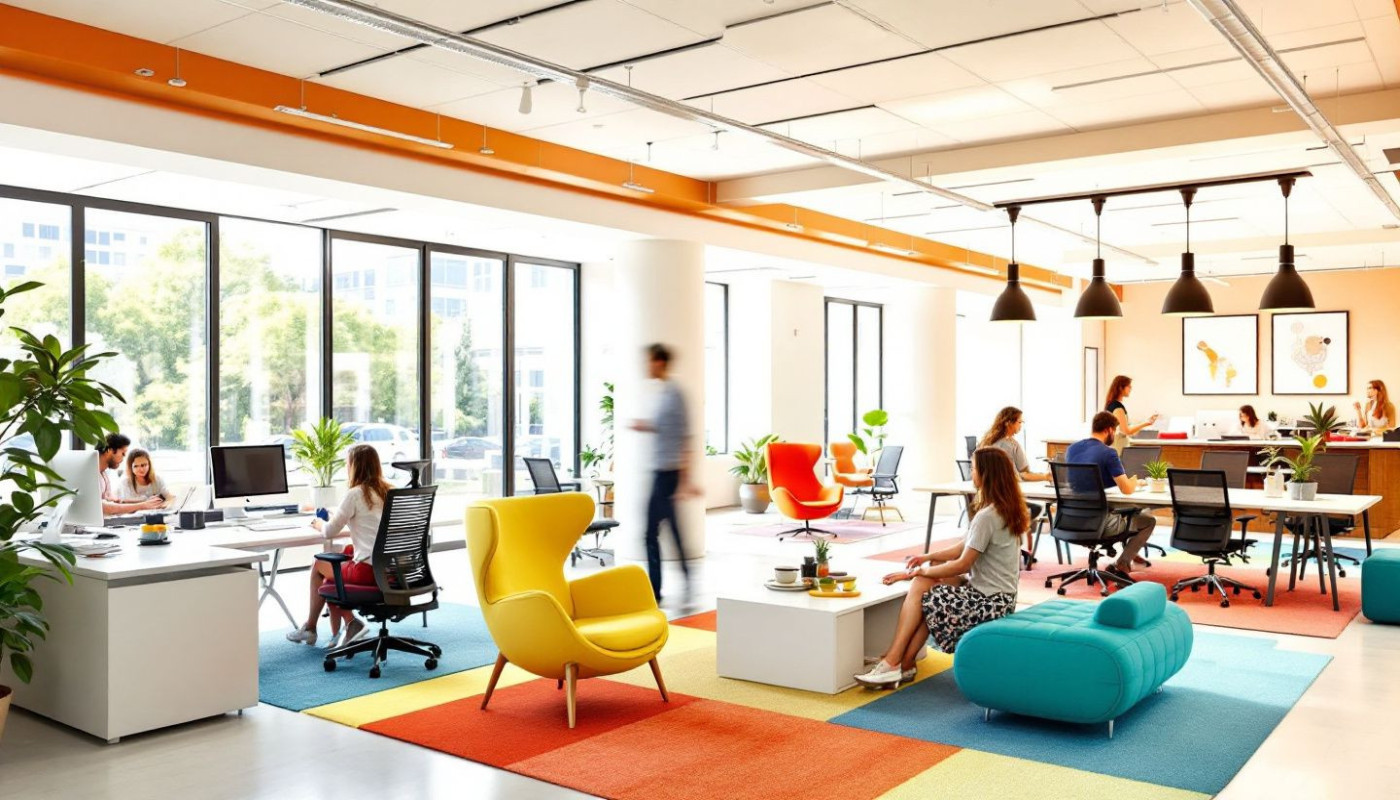Table of contents
Exploring how coworking environments influence professional productivity unveils a dynamic landscape of collaboration, innovation, and adaptability. As flexible workspaces become increasingly popular, understanding their impact on work efficiency and job satisfaction is essential for professionals seeking optimal performance. Dive into the following paragraphs to uncover the multifaceted ways coworking shapes productivity and discover strategies to harness its potential for professional growth.
Benefits of collaborative spaces
Collaborative workspaces foster an environment where coworking naturally enhances communication, as professionals from diverse backgrounds interact and exchange ideas more freely than in traditional offices. This open setting supports resource sharing, giving members access to varied tools, expertise, and knowledge, which fosters synergy that drives innovation and streamlines problem-solving. Networking becomes organic in a flexible workspace, offering daily opportunities to build valuable relationships that can lead to partnerships or new business avenues. The flexibility inherent in these environments allows individuals to tailor their schedules, resulting in greater autonomy and a balanced workflow, which directly improves professional productivity. Through collaboration and easy access to shared resources, these workspaces not only support ongoing learning and skill development but also play a pivotal role in the evolution of modern business practices.
Boosting motivation and creativity
Coworking space environments are recognized for nurturing motivation and creativity, both of which are foundational for professional productivity and innovation. The open, collaborative nature of these spaces taps into intrinsic motivation by offering autonomy, a sense of purpose, and opportunities for mastery—key psychological triggers identified by organizational psychologists. Exposure to a community of professionals from varied backgrounds facilitates the exchange of ideas and best practices, while community-driven initiatives such as skill-sharing sessions, brainstorming events, and mentorship programs further stimulate creative thinking. The influence of diverse work cultures in a coworking space breaks down conventional workplace silos, encouraging experimentation and novel problem-solving approaches. Motivation and creativity are not only beneficial for personal growth but also serve as catalysts for team performance and organizational advancement, making coworking spaces a fertile ground for breakthroughs and sustained professional productivity.
Reducing isolation and burnout
Coworking environments offer a dynamic remedy for the isolation frequently reported by those engaged in remote work or freelancing. Traditional remote work models can lead to extended periods without in-person contact, increasing the risk of burnout and diminished productivity. Coworking spaces, in contrast, foster daily opportunities for meaningful social interaction, whether through shared work areas or informal conversations. The presence of diverse professionals encourages spontaneous collaboration and knowledge-sharing, nurturing robust social support systems. Through structured communal events and networking activities, individuals expand their support networks, gaining access to resources and encouragement that buffer against the psychological stressors linked to isolation. Ultimately, these connections promote emotional well-being, motivation, and sustained productivity, marking coworking as a valuable solution for those seeking to mitigate the adverse effects of remote work environments.
Access to resources and technology
Coworking environments are designed to provide seamless access to advanced resources and technology, playing a pivotal role in professional productivity. High-speed internet ensures that collaborative projects, cloud-based workflow, and real-time communication run efficiently, while state-of-the-art conference facilities support meetings, virtual sessions, and client presentations. Shared tools, from printers and scanners to audiovisual equipment, are readily available, reducing logistical barriers and allowing professionals to focus on core tasks. The presence of these amenities contributes to a robust digital ecosystem, where diverse professionals can leverage high-quality infrastructure without the overhead costs of traditional office setups.
The integration of cutting-edge infrastructure within coworking spaces directly supports a wide range of professional activities, from software development to creative design. Reliable connectivity, smart meeting rooms, and ergonomic workstations are essential for maintaining productivity in fast-paced industries. In addition, coworking spaces often stay ahead of technological trends, regularly upgrading equipment and digital services to match the evolving demands of their members. This proactive approach ensures that teams and individuals have uninterrupted access to the latest resources and technology, fostering an atmosphere of continuous innovation.
Choosing a workspace with optimal resources is vital for both startups and established companies seeking flexibility and efficiency. For example, the Best coworking spaces in San Diego offer a prime illustration of environments where top-tier infrastructure and technology are prioritized. These spaces provide not only practical tools but also foster a culture where connectivity and collaboration thrive, demonstrating the direct correlation between sophisticated coworking infrastructure and elevated professional productivity. Access to such well-equipped environments empowers professionals to maximize their output in a competitive landscape.
Shaping work-life balance
Coworking space environments significantly influence work-life balance by offering flexibility that traditional offices or home setups often lack. Professionals utilizing these shared spaces benefit from adaptable schedules, allowing them to align their productive hours with their personal rhythms and external commitments. This flexibility fosters a sense of autonomy and reduces stress, directly enhancing productivity and job satisfaction. Boundary management is a core principle at play, as the physical separation between work and home environments helps individuals mentally switch between professional and personal roles, minimizing the risk of burnout. Many coworking spaces also integrate wellness initiatives, such as meditation rooms, fitness classes, and social events, which support both physical health and mental well-being. These factors create a holistic setting where professionals can thrive, reinforcing a robust work-life balance while maximizing output and overall wellness.
Similar articles

How Flexible Office Spaces Boost Productivity And Creativity?

The impact of artificial intelligence on job market trends and career opportunities

